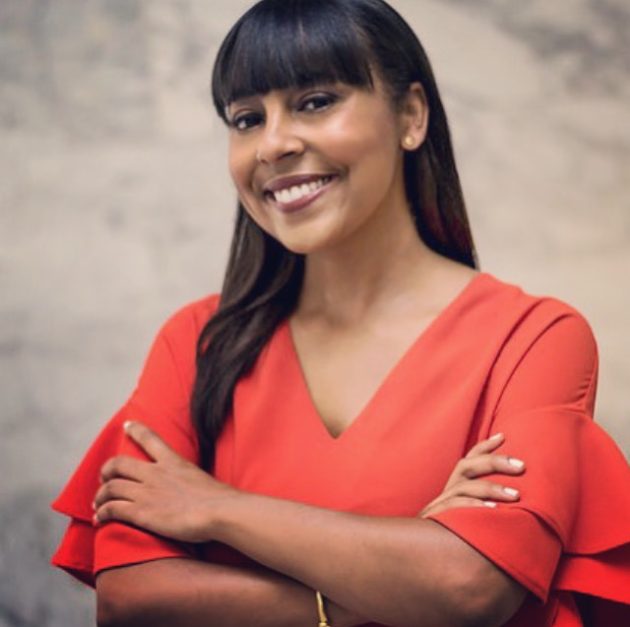Jaia Thomas is a Los Angeles, CA based sports and entertainment attorney. Ms. Thomas is a graduate of Colgate University and The George Washington University Law School. She also holds a Certificate in Television, Film and New Media Production from University of California, Los Angeles (UCLA). A native of Cincinnati, Ohio, Ms. Thomas is an instructor at UCLA, where she teaches a course titled Copyright Law in the Entertainment Industry. Prior to her appointment at UCLA, she was an instructor at American University in Washington DC, where taught graduate students in the School of Communication the intricacies of forming and operating a media production company. She has also guest lectured at Carnegie Mellon University and Vassar College. She is a member of the New York Bar Association and American Bar Association.
Ms. Thomas founded her own practice “The Law Office of Jaia Thomas” in 2010 which is a multi-service law practice specializing in sports and entertainment that focuses on providing quality and customized legal solutions to corporations and individuals in all facets of the sports and entertainment industry. You can follow Jaia Thomas on Twitter and connect with her on LinkedIn.
D’Bria Bradshaw: When & how did you become involved in the sports & entertainment legal industry? What was your first internship or job?
Jaia Thomas: I actually attended law school with the hopes of becoming a civil rights attorney. And then I changed course the summer of my 1L year. My very first job while in law school was a summer associate position with a large law firm in my hometown, Cincinnati, Ohio. The firm represented the NFL team, Cincinnati Bengals and that was really my first introduction into sports law and some of the ancillary legal issues that surround the sports industry. When I went back to Washington DC to start my 2L year (at George Washington University Law School), I got an internship working for the television show Dateline and that was my first introduction into the television industry.
DB: What prompted you to start your own practice? 
JT: I was actually at a crossroads in my career and my parents prompted me to start my own practice. My mom reminded me that it is always better to build your own empire than to continue building other people’s empires. Entrepreneurship also runs in my blood. Two of my favorite people, my dad and uncle, are entrepreneurs, albeit in different industries. I was also drawn to the flexibility of owning my own practice. Running a practice (and business) is extremely challenging but the rewards outweigh the challenges.
DB: What has been the most difficult or challenging aspect of being a woman in this field?
JT: Well, I think it has been equally challenging not only being a woman but being an African-American woman. This field is still heavily populated by white men and I obviously don’t fit that demographic. I’ve encountered countless people who have expressed they would feel more comfortable going with a man or someone who fits the demographic of who is traditionally portrayed as a “qualified attorney” than to hire me. Dealing with antiquated views of race, gender and capability has been very challenging.
DB: What does a typical work week look like for you?
JT: My work week really varies. But, I spend a bulk of my time drafting, reviewing and negotiating contracts on behalf of clients. I represent a lot of writers, talent, producers and directors in the television and film industry. So, the bulk of my time is spent emailing or on the phone with them discussing deals coming down the pipeline and ensuring their interests are being properly protected. I also teach throughout the year. During the fall I teach a Copyright Law course at UCLA and in the summer I teach a course at Southwestern Law School on how to launch and successfully sustain a law practice. So, a lot of time is also spent preparing for class.
DB: What are 3 characteristics that you believe all attorneys should have if they want to be a successful sports & entertainment attorney?
JT: Persistence, Perseverance and Personality
DB: If you could give your 18 year old self advice in 140 characters or less, what would it be?
JT: Be open. Push harder. Take more risks. Follow your instincts. Do what makes you happy.
DB: What advice would you give to aspiring or young attorneys that want to pursue a career in the sports & entertainment field?
JT: I would recommend finding a niche. Sports and entertainment law is a very broad area of the law and covers a lot of subsections ranging from music, film, digital, art, fashion, television, etc. I think it is almost impossible to be well versed in all aspects of the sports and entertainment industry so I would recommend figuring out what area of the industry you are most interested in and focus on that. Develop an expertise in a specific field of sports and entertainment. I would also recommend networking, networking, networking. At this point in my career 99% of my clients come from referrals. In this industry a lot of it boils down to who you know. Try out a handful of various networking techniques and see where you’re getting the most return (by the way, one networking book I would highly recommend is “Never Eat Alone”).
